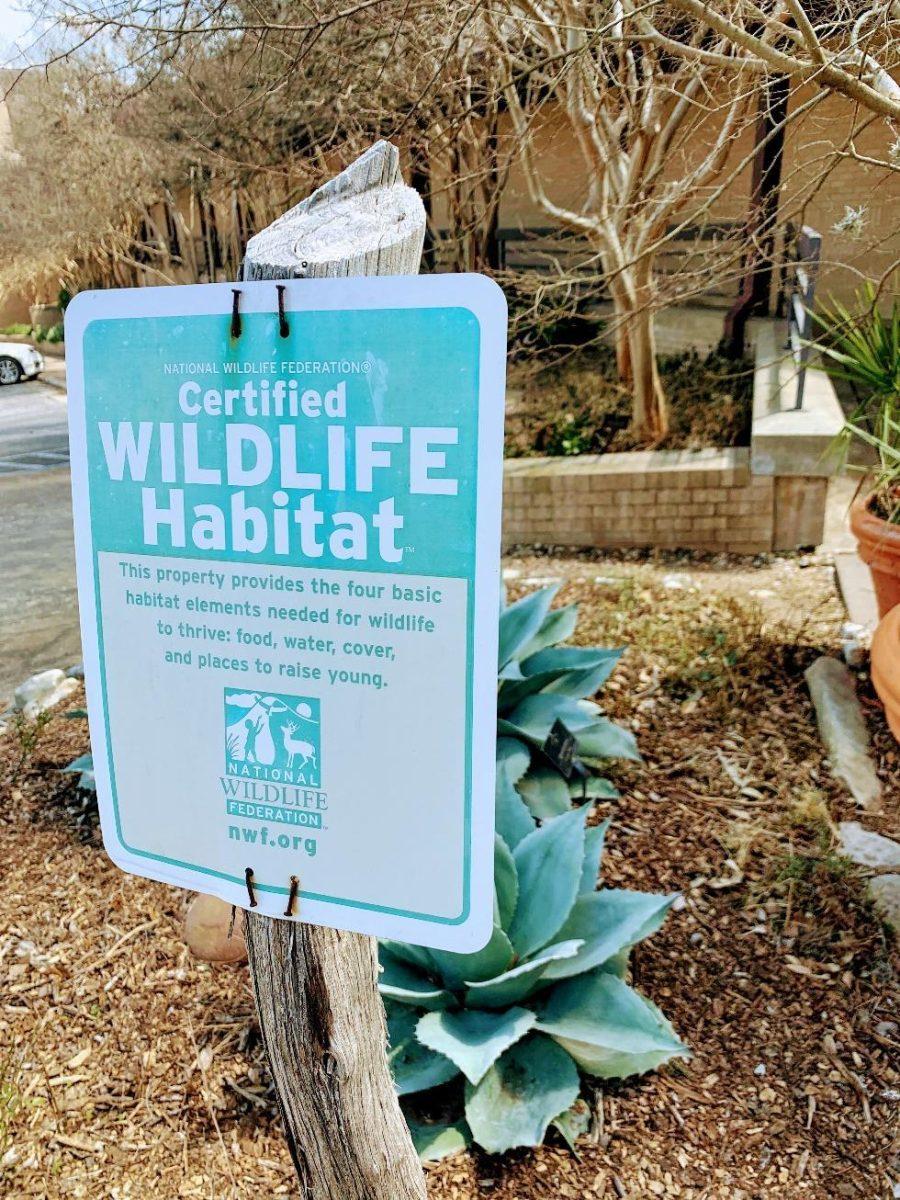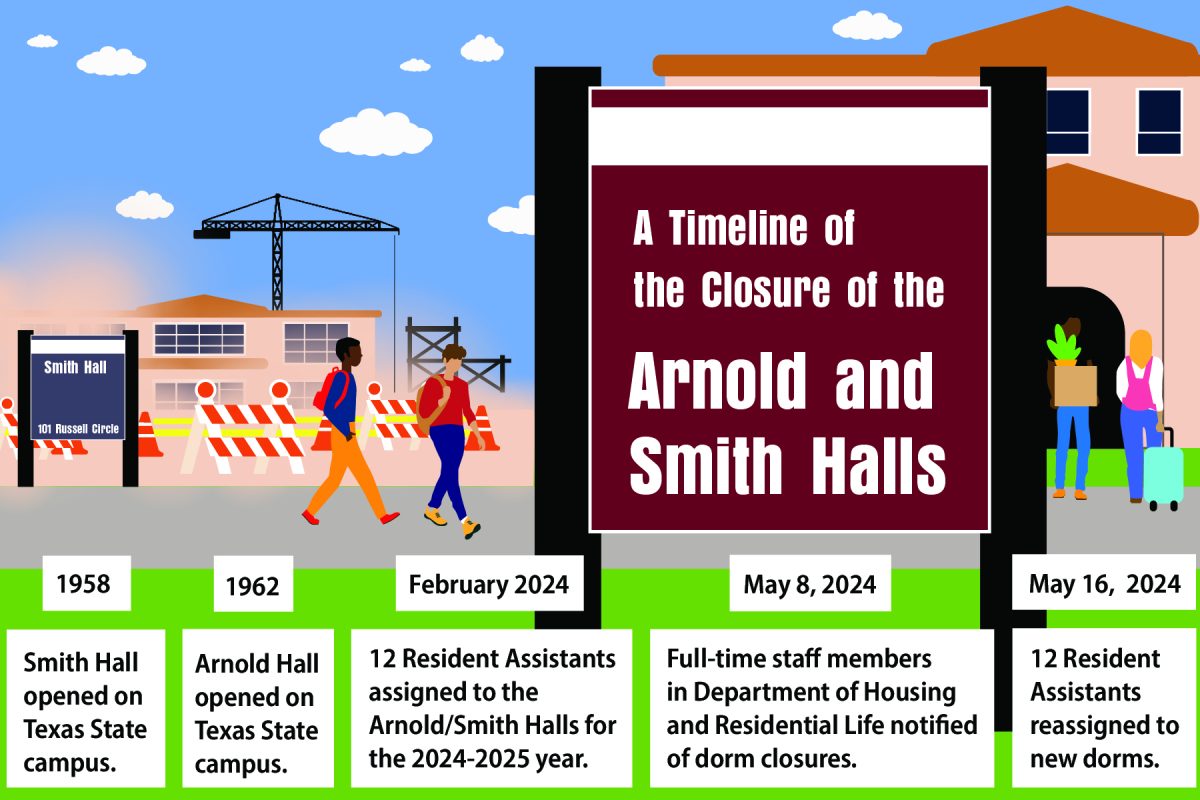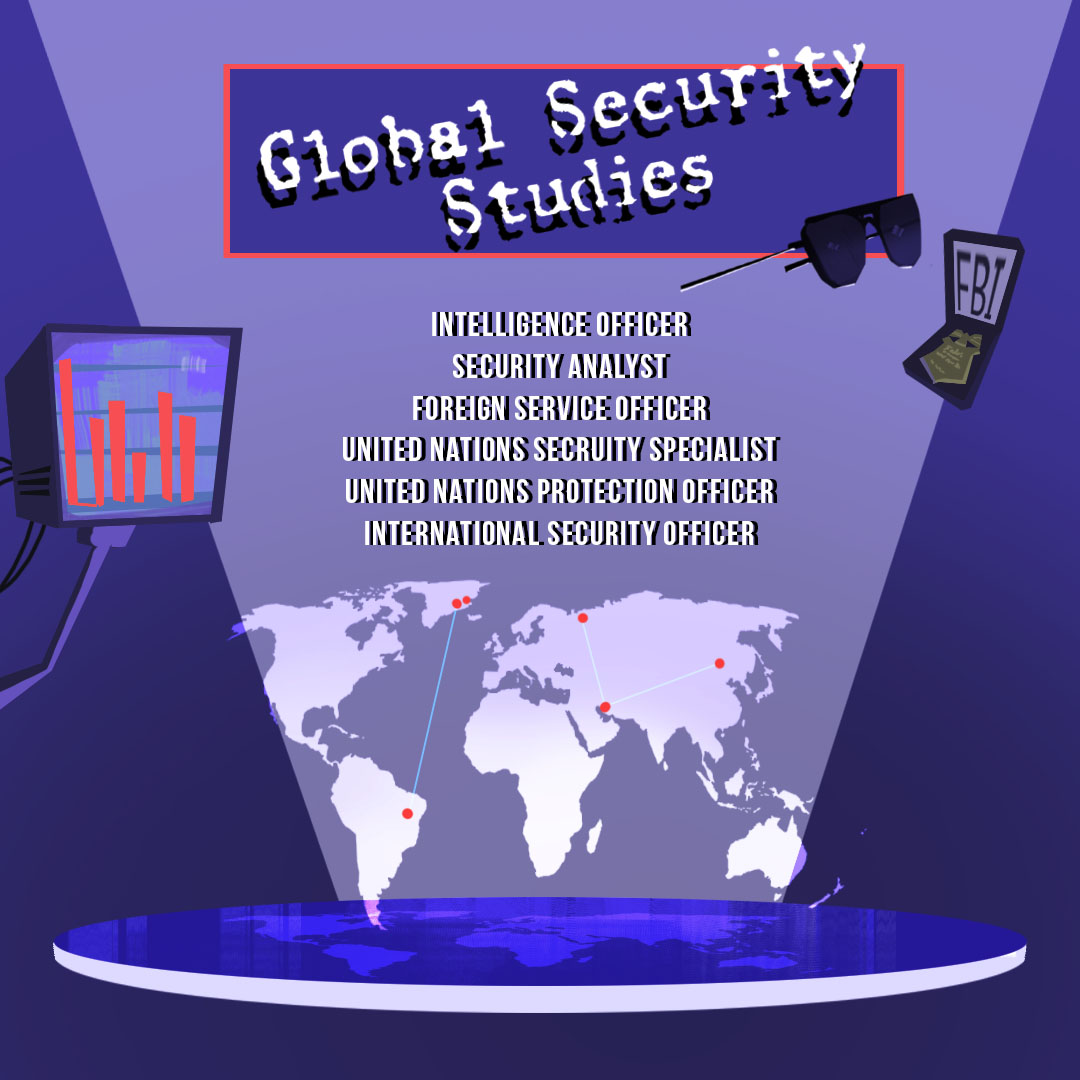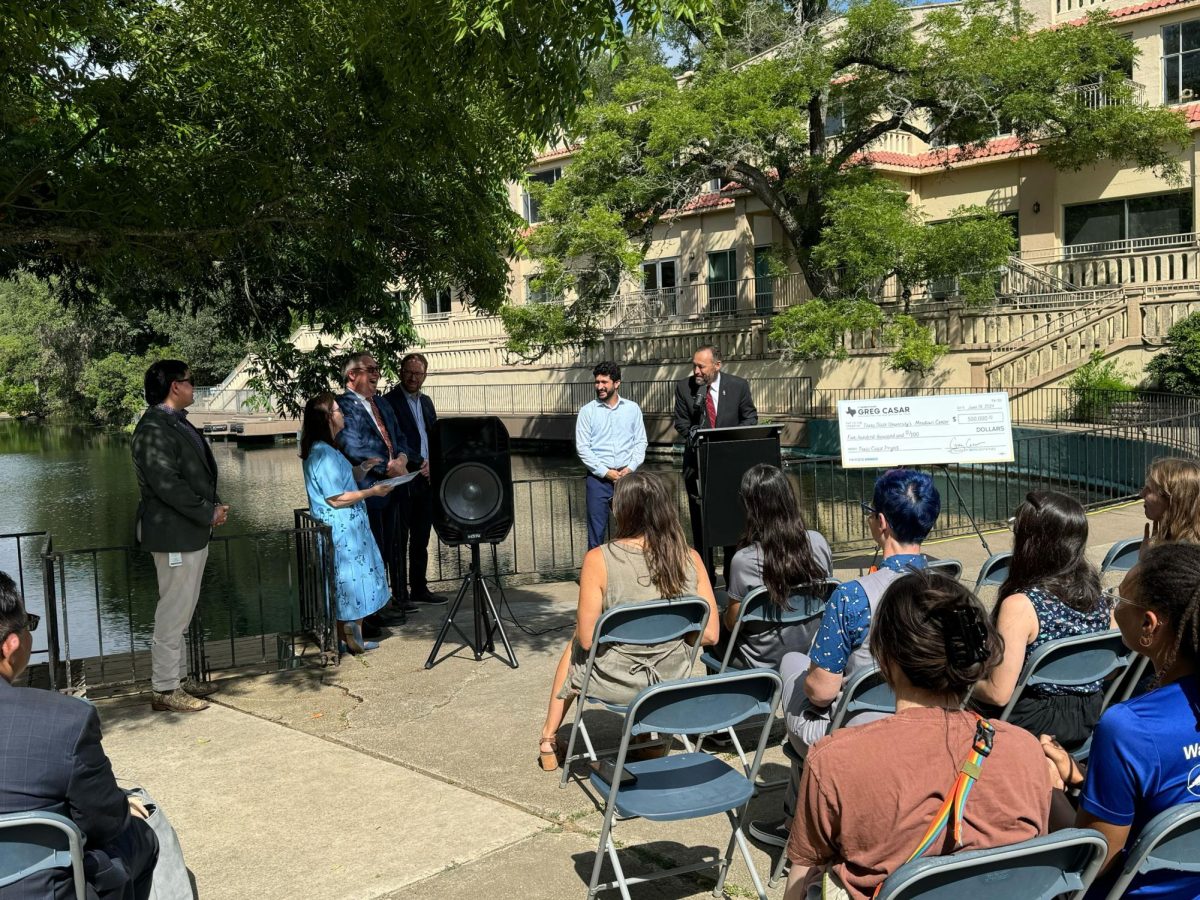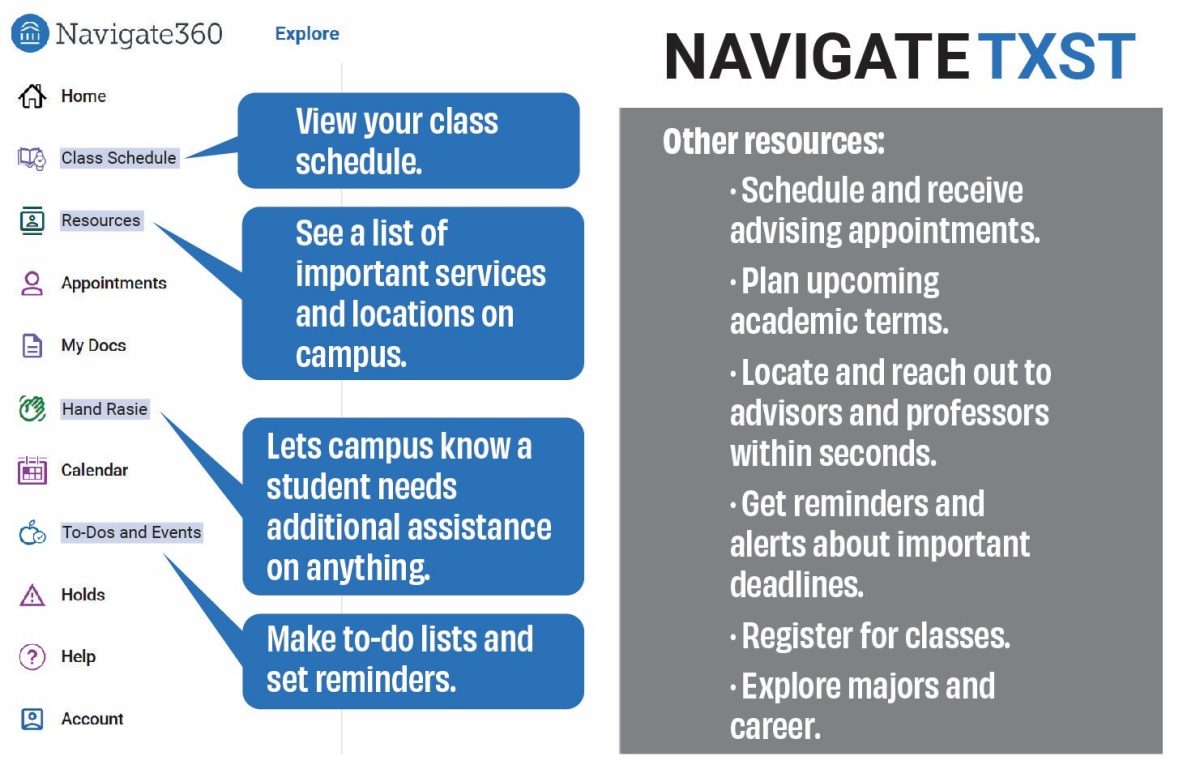With concerns of climate change and pollution on the rise, Texas State students and faculty are striving to implement eco-friendly habits on campus through involvement with environmental organizations and initiatives like composting, river cleanups and recycling.
Since 2009, Bobcat Blend has been leading environmental initiatives on campus with student leadership opportunities and community involvement. The organization seeks to teach students the importance of food waste management and composting. Through these initiatives, students gain hands-on experience by helping collect and operate Bobcat Blend’s compost facility.
“Sometimes students think that they can’t make an impact because they’re just a student,” Bobcat Blend Faculty Advisor Tina Cade said. “But you’re at a special window of time in your life where you get to explore all of these possibilities and gain all of these experiences.”
Like other sustainable efforts at Texas State, Bobcat Blend is funded through the Environmental Service Committee, a student and faculty-led committee that seeks to provide funding for environmentally centered projects on campus. Cade was inspired to apply for a grant within the committee to help make use of local invasive species.
Food waste, in particular, was the issue that sparked Cade to propose a system that would take pre-consumer food scraps that were thrown away in the process of preparing meals from dining halls and use invasive river plant species, such as the water hyacinth, as a moisture agent that would assist insects and bacteria in the composting process. When mixed with soil, the compost provides plants with necessary nutrients such as nitrogen, phosphorus and potassium.
According to the U.S. Department of Agriculture, food waste is the largest single component in municipal landfills, amounting to 133 billion pounds a year. While this is harmful to the environment, it can also be costly, creating gas in the sewer system due to biological decomposition that must be dealt with.
Through its composting initiative, Bobcat Blend has nearly cut in half the amount of garbage the university sends into mainstream landfills. This led to the organization receiving the Texas Environmental Excellence Award in 2013.
The organization also studies invasive plant species around the San Marcos River, successfully removing harmful species such as the water hyacinth and water lettuce. A current initiative the organization has is learning to compost elephant ears, an invasive species that are plentiful in Aquarena Spring Lake.
Another organization with a similar goal of creating a sustainable campus is the Environmental Conservation Organization (ECO). Sponsored by the Department of Geography and Environmental Studies, ECO members work with local farmers and gardeners and conduct special projects like invasive species removals and river cleanups.
As an environmentally friendly organization, members promote sustainable lifestyles and education by giving away seed bombs on the Quad, hosting documentary nights and sharing information about local businesses students can support. ECO President May Green, a geography resource and environmental studies senior, said the best thing students can do to live sustainably is to keep in mind that they’re voting with their dollars.
“If there’s anything that you could do to support a local business over something like Amazon,” Green said. “Also just refusing plastic when you’re at the store. Try to buy things that have less plastic packaging on them.”
Bobcats can also take individual action by buying local from farmers and other vendors at farmers’ markets and thrift stores. ECO Secretary Griffin Moore, a geographic information science sophomore, said buying second-hand helps reduce students’ contributions to plastic and general waste.
“Thrifting, not just for clothes, but also secondhand stores for anything can make a huge difference,” Moore said. “Whenever you’re buying stuff, think about how much plastic does the packaging have, or how much does it waste. Buying locally is the biggest thing you can do though.”
Even those not involved in environmental-based organizations are still making a difference through sponsoring environmental projects and education on campus. In 2003, Texas State became one of the first universities to create an environmental service fee. The fee is only a single dollar, but with about 37,000 students, Texas State’s Environmental Service Committee (ESC) Chair Mitchel Sabourin said the dollar fee goes a long way.
“We were the first people to have [an environmental service fee], and now we have the lowest funds,” Sabourin said. “So, we are trying to push to have that fee increased… from one dollar to two.”
That small fee has secured funds for a variety of projects such as bird boxes, signage at the Meadows Center and disposable face mask recycling at the Round Rock campus. These projects are supported by award grants that students, faculty, staff, alumni and members can apply for.
In order for ESC grants to be approved, they must be for the purpose of environmental improvements and can include areas such as environmental education, transportation, employment, product purchasing, beautification and irrigation.
The ESC consists of students, professors from the departments of agriculture, biology and geography and representatives from facilities and the Department of Housing and Residential Life. The Office of the Vice President for Finance and Support Services serves as the account manager.
While only six of the 10 students may vote, the other four partake in the discussion of funding projects and apply to request funds for sustainable projects. Sabourin encourages Bobcats to get involved and sit in during meetings to share their opinions, just as he did before he stepped into his official voting position.
“I have been in this committee since 2019,” Sabourin said. “This is my first year as chair, but I have been a voting member for those years. In my years, I have casted votes in funding $150,000 into sustainable projects on the Texas State campus.”
Texas State has a bounty of resources, organizations and opportunities for Bobcats to make change in San Marcos and gain experiences that can help build their resumes, networks and connections.
“If they feel passionate about something, they can make a difference right here and now in our little miniature city,” Cade said.
For more information on involvement opportunities or Texas State’s environmental initiatives, visit https://www.txstate.edu/sustainabilitystudies/Area-Sustainability.html.
Texas State continues efforts for sustainable campus environment
April 25, 2022
Donate to The University Star
Your donation will support the student journalists of Texas State University. Your contribution will allow us to purchase equipment and cover our annual website hosting costs.











